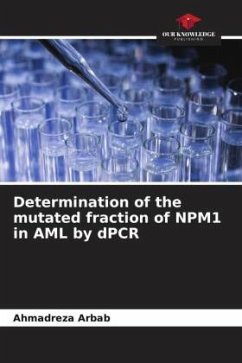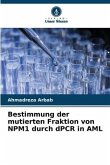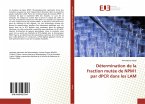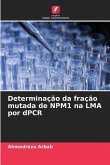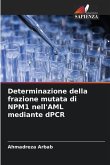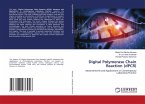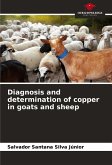Mutation of the NPM1 (Nucleophosmin) gene is one of the most frequently observed acquired mutations in acute myeloid leukaemia (AML). Of the many types of NPM1 mutants, the type A mutation accounts for 80%. Monitoring of this marker is routinely indicated in the management of AML. It is currently monitored using RT-qPCR. The results are expressed as a "mutated/normal" ratio of NPM1 mutants, and require the use of a reference gene.digital PCR is a recent technology that enables absolute quantification of a rare genetic event. The strengths of digital PCR are numerous: the reference gene is identical to the target of interest, the sensitivity is virtually identical to that of RT-qPCR, and there is no need to use plasmid assays. In this context, we have developed a digital PCR method for the NPM1 type A biomarker by determining the optimum parameters of the technique for this detection. In conclusion, digital PCR appears to be a relevant tool for monitoring residual disease.
